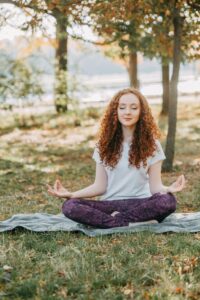Anxiety and addiction are two of the most common mental health struggles in the United States. On the surface, they may seem like separate conditions, but they are deeply intertwined. Many individuals struggling with addiction have underlying anxiety disorders, and many people with chronic anxiety turn to substances as a way to cope. This cycle can be difficult to break without proper treatment.
Understanding the connection between anxiety and addiction is crucial for those seeking recovery. A comprehensive approach that addresses both conditions can lead to lasting healing and prevent relapse. This article explores how anxiety and addiction are linked, why people self-medicate, and what treatment options are available for individuals facing both challenges.
Understanding Anxiety Disorders
Anxiety is a natural response to stress, but when it becomes overwhelming or chronic, it can interfere with daily life. Anxiety disorders are among the most common mental health conditions, affecting over 40 million adults in the U.S. each year. These disorders can manifest in different ways, including:
- Generalized Anxiety Disorder (GAD): Persistent worry about everyday events, often accompanied by physical symptoms like muscle tension, restlessness, and fatigue.
- Panic Disorder: Sudden and intense panic attacks that cause heart palpitations, sweating, shortness of breath, and a sense of impending doom.
- Social Anxiety Disorder: Fear of social situations and interactions, leading to avoidance of social events or extreme distress in public settings.
- Post-Traumatic Stress Disorder (PTSD): Anxiety caused by past trauma, often accompanied by flashbacks, nightmares, and heightened reactions to triggers.
- Obsessive-Compulsive Disorder (OCD): Intrusive, obsessive thoughts that lead to compulsive behaviors, such as excessive handwashing, checking, or counting rituals.
When anxiety becomes overwhelming, many individuals seek ways to manage their symptoms. Unfortunately, some turn to alcohol, drugs, or prescription medications as a form of self-medication, which can lead to addiction.
Why Anxiety and Addiction Often Co-Exist
The link between anxiety and addiction is complex, but it often develops through a pattern of self-medication. Individuals struggling with anxiety may use substances to calm their nerves, quiet racing thoughts, or escape from overwhelming emotions. Some of the most common ways people self-medicate include:
- Alcohol: A depressant that slows down the central nervous system, temporarily reducing feelings of anxiety.
- Benzodiazepines (Xanax, Valium, Ativan): Prescription medications designed to relieve anxiety, but they are highly addictive when misused.
- Opioids (Oxycodone, Fentanyl, Heroin): Painkillers that produce a sense of euphoria and numb emotional pain, making them attractive to those with anxiety disorders.
- Marijuana: Some individuals use cannabis to relax, but long-term use can lead to increased anxiety and dependency.
- Stimulants (Cocaine, Adderall, Methamphetamine): Substances that provide a temporary boost in energy and confidence but can lead to increased anxiety over time.
While these substances may provide short-term relief, they do not address the root causes of anxiety. Over time, repeated use can lead to physical dependence and addiction, creating a dangerous cycle where anxiety worsens, and substance use increases.
The Cycle of Anxiety and Addiction
The relationship between anxiety and addiction often forms a vicious cycle:
- Anxiety Symptoms Appear: The individual experiences excessive worry, fear, or panic.
- Substance Use Begins: To cope with anxiety, the individual turns to alcohol, drugs, or medication.
- Temporary Relief: The substance temporarily numbs anxiety symptoms, reinforcing its use.
- Increased Tolerance: Over time, the body builds a tolerance, requiring more of the substance to achieve the same effect.
- Dependence Develops: The individual becomes physically or psychologically dependent on the substance to function.
- Rebound Anxiety: When the substance wears off, anxiety returns even stronger, leading to continued use.
- Addiction Takes Hold: The person becomes trapped in a cycle of using to manage anxiety, even as addiction causes more stress and problems in their life.
This cycle is difficult to break without professional intervention. That’s why it’s essential for treatment programs to address both anxiety and addiction together.
How Anxiety Increases the Risk of Addiction
Research has shown that individuals with anxiety disorders are more likely to develop substance use disorders. Several factors contribute to this increased risk:
- Genetic Predisposition: Some people are genetically more prone to both anxiety and addiction, meaning they are at higher risk for developing both conditions.
- Brain Chemistry: Anxiety and addiction affect similar areas of the brain, particularly those involved in stress, reward, and impulse control.
- Environmental Stressors: Trauma, financial stress, job pressure, or relationship issues can trigger anxiety and increase substance use.
- Social Factors: Individuals with social anxiety may use alcohol or drugs to feel more comfortable in social settings, leading to habitual use.
- Lack of Coping Skills: Without healthy ways to manage stress, individuals may turn to substances as their primary coping mechanism.
Dual Diagnosis: Treating Anxiety and Addiction Together
When someone struggles with both an anxiety disorder and a substance use disorder, they are considered to have a dual diagnosis or co-occurring disorder. Treating both conditions at the same time is crucial for long-term recovery.
Effective dual diagnosis treatment includes:
Medical Detox
For those who are physically dependent on substances, detoxification is the first step. Medically supervised detox ensures that withdrawal symptoms are safely managed, especially for individuals dependent on alcohol, benzodiazepines, or opioids.
Cognitive-Behavioral Therapy (CBT)
CBT is one of the most effective treatments for both anxiety and addiction. It helps individuals:
- Recognize and challenge negative thought patterns.
- Develop healthier coping strategies.
- Learn techniques for managing anxiety without substances.
Medication-Assisted Treatment (MAT)
For individuals recovering from opioid or alcohol addiction, MAT can help manage cravings and withdrawal symptoms. However, when treating co-occurring anxiety, non-addictive medications such as SSRIs (Selective Serotonin Reuptake Inhibitors) or beta-blockers may be prescribed instead of benzodiazepines.
Holistic Approaches
Many rehab centers incorporate holistic therapies to help individuals manage anxiety naturally. These may include:
- Mindfulness meditation to reduce stress and promote relaxation.
- Yoga and exercise to improve mental and physical well-being.
- Nutritional counseling to support brain health and stabilize mood.
- Art or music therapy to express emotions in a healthy way.
Support Groups and Peer Support
Programs like Alcoholics Anonymous (AA), Narcotics Anonymous (NA), and Dual Recovery Anonymous (DRA) provide peer support and community, which can be essential for long-term recovery.
Breaking the Cycle: Long-Term Strategies for Managing Anxiety and Addiction
Recovery doesn’t end after rehab. Long-term success requires ongoing effort and a commitment to managing both anxiety and addiction. Here are some strategies for maintaining recovery:
- Continue Therapy: Regular therapy sessions provide guidance and help prevent relapse.
- Practice Healthy Coping Mechanisms: Engage in hobbies, exercise, journaling, or relaxation techniques instead of turning to substances.
- Build a Strong Support System: Surround yourself with positive, supportive people who encourage healthy choices.
- Prioritize Self-Care: Sleep, nutrition, and exercise all play a role in mental health and recovery.
- Avoid Triggers: Identify and avoid situations that increase anxiety or tempt substance use.
The Connection Between Anxiety and Addiction
The connection between anxiety and addiction is undeniable. For many, substance use begins as an attempt to manage overwhelming emotions, but it quickly spirals into a harmful cycle. The good news is that with the right treatment, individuals can break free from this pattern and achieve lasting recovery.
If you or a loved one is struggling with both anxiety and addiction, seeking professional help is the best step forward. With dual diagnosis treatment, therapy, medication management, and a strong support network, it is possible to regain control and build a healthier, substance-free life.



